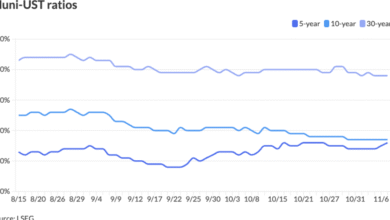Invesco Mortgage Capital Flips To Profit As Bond Markets Settle

What’s going on here?
Invesco Mortgage Capital swung back to profit last quarter, powered by a pickup in agency mortgage-backed securities and steadier bond markets, posting $0.74 per share after a rocky stretch earlier this year.
What does this mean?
After a tough quarter, Invesco Mortgage Capital reported $50.2 million in net income for Q3, turning things around from a prior loss. Net interest income hit $17.6 million, while book value per common share edged up to $8.41 from $8.05, lifting economic return to nearly 9%. The rebound mainly came from agency residential mortgage-backed securities – demand and pricing both improved as rate volatility cooled and investors felt more comfortable jumping back in. Shifts in swap spreads helped as well. Invesco’s decision to trim preferred stock and boost its debt-to-equity ratio shows a push to refine its capital game. The company expects book value to hold steady near-term, forecasting $8.31–$8.65 per share. Still, Wall Street’s not entirely sold, with most analysts rating the stock ‘hold’ and price targets barely above current levels.
Why should I care?
For markets: Mortgage-backed optimism meets cautious reality.
Agency RMBS and CMBS are showing stronger signs of stability, drawing investors back now that bond markets have calmed down. Still, the difference between Invesco’s price target and current share price is small – hinting at limited upside for now. The wider mortgage REIT space is haunted by memories of last year’s wild rate swings, with many investors hesitant to jump in aggressively, even though some peers are getting a bit more love from analysts.
The bigger picture: Rates put resilience to the test.
With rate swings settling, mortgage REITs like Invesco are finding their feet, but staying nimble is key with policy shifts always looming. The firm’s capital tweaks show it’s gearing up for whatever comes next. If rates hold steady and investor demand stays healthy, the sector could quietly move forward – but any sudden moves from policymakers could quickly change the story.






